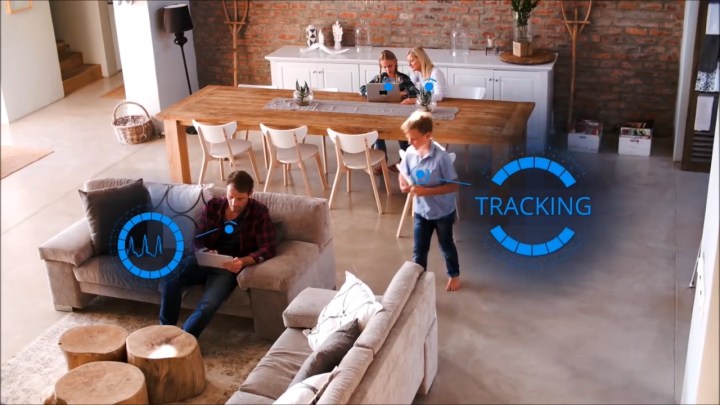
Vayyar’s proprietary technology combines multiple capabilities into a single sensor that covers an entire smart home. These small, cost-efficient sensors send multiple radio frequency waves that are interpreted by Vayyar’s software to create a 3D image of what’s going on in the environment. Every time these electromagnetic waves encounter different materials, the reflection from that signal is collected by Vayyar’s sensors.
“The core ability to monitor an environment, track movements, classify objects, measure vital signs, and see through solid objects are the pillars of our growth,” the company said.
The company was founded in 2011 with a vision to use this advanced scanning technology to detect breast cancer. Once it had a working technology, Vayyar realized the scope of its application needed to widen considerably, and fielded interest from markets including smart home, security, automotive, retail, elder care, construction, and more. The company currently employs about 50 people.
In terms of smart homes, Vayyar may enable a wide variety of applications, including some that haven’t yet been revealed. At their most basic level, Vayyar’s sensors can detect and track presence, location, movement, posture, and vital signs without the use of cameras or wearables. Users could monitor a home to detect people’s locations, movements, and other data with real time, activity-based automation.
These sensors can also work in concert with other smart home devices for tasks like optimizing energy consumption, sound optimization and echo cancellation, and proactively anticipating the needs of people in the home. The technology also lends itself to other smart home needs like security and fire protection, as well as maintenance and renovation. The company also envisions using the sensors for elderly care by, for example, identifying when someone has fallen in the shower or monitoring breathing or heart rates remotely, all without capturing any optic data to ensure privacy.
“The home is a place where people need to feel safe. In a world where IoT [Internet of Things] introduces an ever-growing number of sensors into people’s private spaces, we are on a mission to ensure that this is done without compromising a person’s right to safety and privacy, Raviv Melamed, co-founder, CEO and chairman of Vayyar, said.
In late 2017, Vayyar announced the closure of a $45 million Series C financing round, bringing the company’s total capital raised to date to $79 million. Vayyar is also closely partnered with Softbank Corp. to develop technological solutions that combine Softbank’s artificial intelligence with Vayyar’s sensor technology for use in public transport, construction, and elderly care in the Japanese market.
While there is no fixed price for Vayyar’s sensors, Vayyar has released a fully programmable consumer version of their sensors so that developers and small businesses with niche needs can create their own solutions. These off-the-shelf development kits are marketed under the brand name Walabot and range in price from $149 to $599.


